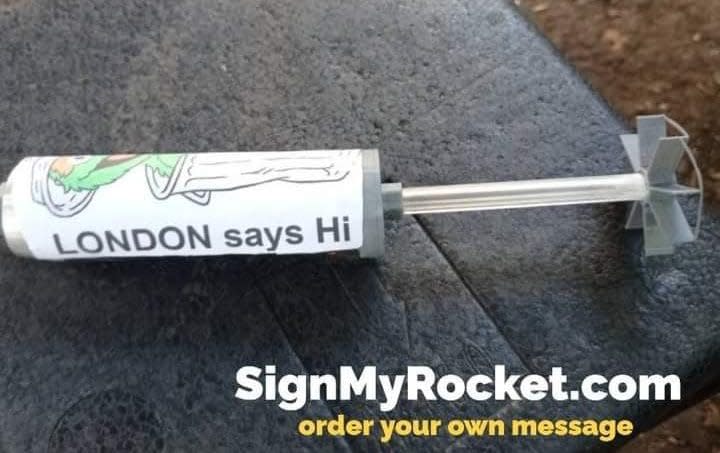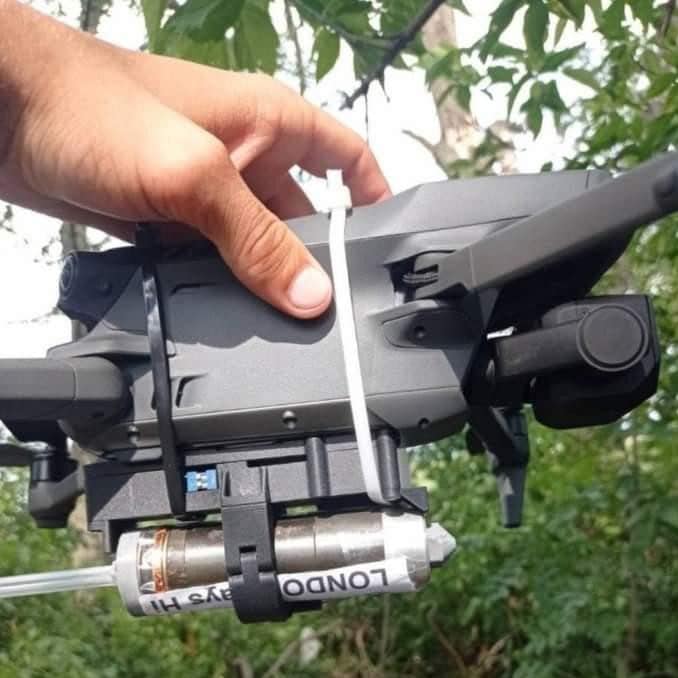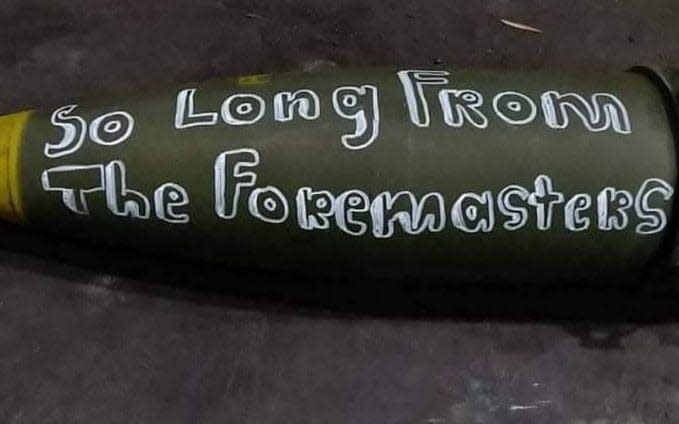‘London says hi’: Britons put personalised messages on Ukrainian missiles

Britons are forking out up to £2,500 to place personalised messages on Ukrainian missiles and even tanks, in the latest scheme to crowdfund support against the Russian invasion.
Since Feb 24, when Vladimir Putin’s forces invaded Ukraine, various crowdfunding websites have been set up to encourage Westerners to donate to the Ukrainian military.
But one new website has a personal twist – Sign My Rocket, which Britons are using to place messages such as “London says hi” onto missiles before they are launched at Russian targets.
Anton Sokolenko, a volunteer at Sign My Rocket, said “95 per cent” of donations were being sent by English-speaking customers, with the majority based in the United States.
Speaking to The Telegraph, he provided photographs that showed a missile and a drone carrying the personalised message: “London says hi.”

“It just appeared in my mind,” he said, when asked how the organisation came up with the idea.
Customers of Sign My Rocket pay about $150 (£120) to put a personalised message on a missile, and $3,000 (£2,500) to place the message on a tank.
Sign My Rocket will then provide either photographs of the message, or even a video of the weapon being fired.
The scheme has already raised $200,000 (£160,000) in donations, Mr Sokolenko said, with 1,566 personalised messages ordered. Many of the messages are typically dark and humorous, such as “from Nato with love” and “remember the Alamo”.

Soldiers have been known worldwide to write messages on missiles before firing them, notably during the First World War. In one recent – and infamous – case, Russian soldiers wrote “for the children” onto a missile that hit a train station in Kramatorsk, killing 50 people.
Ukrainians have also relied on crowdfunding to boost the war effort by selling chunks of destroyed Russian weaponry, such as pieces of downed helicopters. One firm is offering keyrings made out of “Havoc” helicopters to donors who send more than £800.
Various online crowdfunding websites have also been set up to take donations for flak jackets, clothing and food supplies to support Ukrainians. Crowdfunding websites are also being used to provide Ukrainian fighters with drones.
A Turkish-made Bayraktar TB2, which is so revered by Ukrainian fighters that it now has its own theme song, was crowdfunded in just three days. The drone’s manufacturers were so impressed with the public show of support that they provided the drone for free.

 Yahoo Movies
Yahoo Movies 